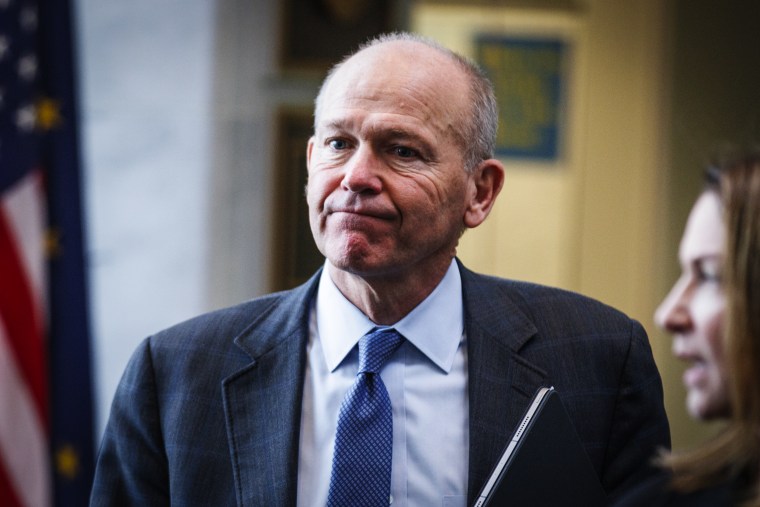Amidst a growing safety crisis, the Boeing Company’s Chief Executive Officer (CEO) and other senior executives have chosen to step down from their positions. Their decision comes as the world-renowned aircraft manufacturer grapples with multiple issues that have raised major concerns around the corporation’s management of safety and quality control.
It’s important to note that the safety crisis engulfing Boeing revolves heavily around the two fatal crashes of its best-selling aircraft, the 737 Max. These tragic incidents resulted in the deaths of 346 people and have put a spotlight on the business practices of the iconic American company. After these crashes, investigations revealed significant lapses in both the design and certification of this specific model, raising severe doubt over the company’s ability to safely produce aircraft.
CEO, David Calhoun, who stepped into the company during this tumultuous period with the purpose of restoring both its tarnished image and trust of its many stakeholders, therefore carried a considerable burden. However, in a surprising development, he himself got caught in the storm and decided to resign from his post. Despite his short tenure-loaded with challenges and crises, he was appreciated for his efforts towards company reforms, including transparency and addressing safety lapses.
Along with Calhoun, several other high-ranking executives have also decided to part ways with the corporation. Their unexpected departure results in a major leadership vacuum that needs to be filled urgently if Boeing wishes to navigate successfully through this crisis.
Boeing is also facing multiple lawsuits from the victims’ families of the 737 Max crashes. The lawsuits, matched with the ongoing investigations and a tarnished reputation, are contributing to the historic crisis faced by Boeing. The mass departure of executives is perceived as a lack of responsibility and accountability in the face of significant ethical failures, impelling reassessment of its corporate culture.
The question remains – who will lead Boeing in this hour of desperation? Whoever steps into these vacant positions have significant tasks ahead to rebuild the corporation’s credibility and restore its lost glory. These leaders will face difficult decisions on safety procedures, corporate culture, public relations, and company strategies.
Moreover, the added challenges caused by the global COVID-19 pandemic have intensified Boeing’s predicament, creating a more complex task for the incoming leaders. The economic slowdown and decreased demand for air travel have led to a steep decline in the company’s revenues, making the turnaround journey more grueling.
With various challenges coming from different fronts, Boeing’s new leadership will be tested on every level. Their priority should be to materialize effective strategies to reconnect with their stakeholders, especially its direct customers – the airlines, and more importantly, safety regulators, alongside ensuring the safe return to flight of the grounded 737 Max aircraft.
The reconstructed Boeing team will need to confront its issues head-on, acknowledging the safety lapses of its predecessor. Understandably, this will not be an easy transition period for Boeing, nonetheless, it is essential for its survival and regrowth. The company’s successful reemergence will significantly depend on its ability to regain the trust of the public, stakeholders, and regulatory authorities in its commitment to safety and quality.




